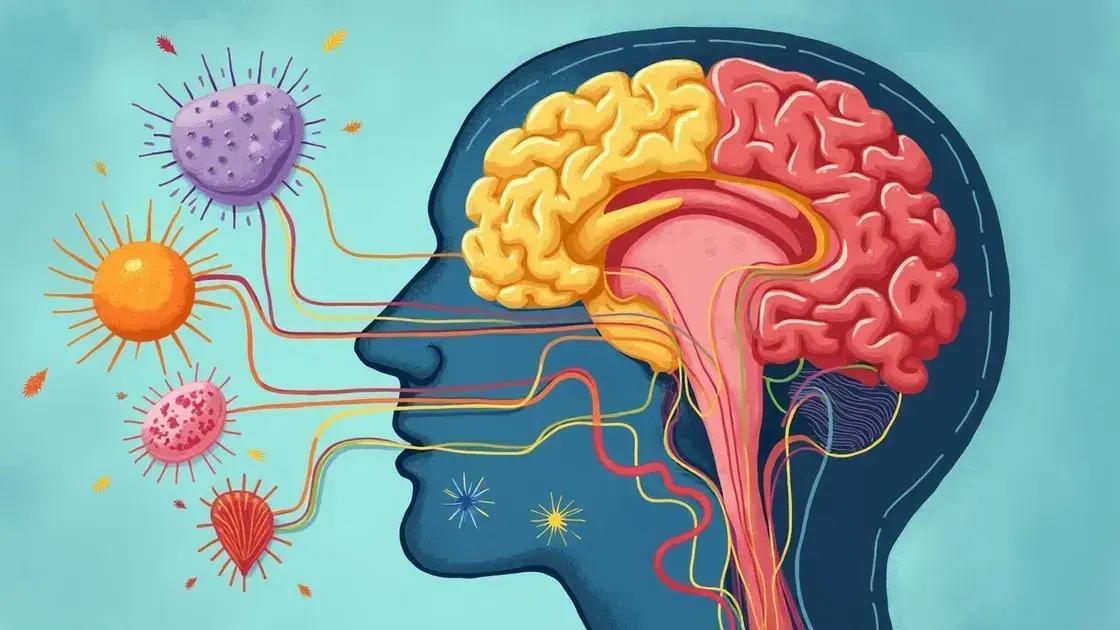The research on smell reveals its profound impact on memory and emotions, highlighting practical applications in marketing, healthcare, and learning. Scents can enhance consumer experiences, support therapeutic practices, and improve memory retention, making them essential in various fields.
Did you know that our sense of smell plays a vital role in our daily lives? Recent studies on the smell trick have unlocked new insights that reveal how smells can influence our emotions, memories, and even our behaviors. In this article, we will delve into understanding the science of smell, explore the latest research findings, and discuss practical applications that enhance our relationship with scents. Discover how all of this connects to our experiences and daily activities!
Understanding the Science of Smell

The sense of smell, known as olfaction, is a complex process that begins with our nose. When we inhale, tiny particles from the environment enter the nasal cavity. These particles then interact with olfactory receptors, which are specialized cells located in the nasal epithelium.
How Olfactory Receptors Work
Each olfactory receptor is designed to detect specific molecules. When a molecule binds to its corresponding receptor, it sends a signal to the brain. This process helps us identify different odors, ranging from pleasant scents like flowers to unpleasant ones like rotten food. Interestingly, humans have approximately 400 different types of olfactory receptors, allowing us to recognize a vast array of smells.
The Role of the Brain in Smell
Once olfactory receptors send signals, they travel to the olfactory bulb, located at the base of the brain. Here, the signals are processed and transmitted to several brain regions. This connection explains why smells can trigger strong emotional responses and vivid memories. For instance, the scent of fresh-baked cookies might remind you of your childhood.
Factors Affecting Smell Sensitivity
Our ability to smell can change based on several factors. Age, health conditions, and exposure to certain substances can impact olfactory sensitivity. For example, older adults often experience a decline in their sense of smell, which can affect their taste and overall enjoyment of food.
The Importance of Smell in Daily Life
Understanding the science of smell is essential not just for appreciation but also for safety. Our sense of smell helps in detecting hazardous situations, such as smoke from a fire or spoiled food. Additionally, smells influence our choices in foods, perfumes, and even relationships, underscoring its importance in our daily lives.
Recent Studies on Olfactory Perception

Recent studies on olfactory perception reveal surprising insights into how we detect and interpret smells. Research shows that our brain processes smells in a unique way that is different from how we process other senses like sight or sound. For instance, recent findings highlight that our ability to identify certain odors is closely linked to our memories and emotions.
The Influence of Context
Studies indicate that the context in which a smell is experienced can significantly affect our perception of it. A pleasant smell in a familiar setting may evoke positive emotions, while the same smell in a new or stressful environment could lead to negative associations. This challenge of processing smells in various contexts shows how our environment shapes our olfactory experiences.
Genetics and Olfactory Sensitivity
Another exciting area of research explores how genetics play a role in our sense of smell. Some studies suggest that certain individuals have a heightened ability to detect specific odors due to their genetic makeup. This can explain why some people may be more sensitive to scents like vanilla or citrus while others may not notice them as much.
Impact of Age on Smell
Age also plays a crucial role in olfactory perception. Research has found that as we age, our sense of smell often diminishes. This decline can affect not just how we experience flavors in food but also our overall enjoyment of life. Understanding this aspect of olfactory perception can help in developing strategies to support healthy aging.
Implications for Food and Health
The insights gained from these studies have important implications for various fields, including food science and healthcare. For example, knowing how smell affects our appetite can help chefs create more appealing dishes. Similarly, understanding olfactory changes can assist doctors in diagnosing certain health conditions.
The Impact of Smell on Memory

The connection between smell and memory is one of the most fascinating areas in the study of the human brain. When we smell something, it triggers a chain reaction that can lead to powerful memories. Research shows that our olfactory system is closely tied to the limbic system, which is responsible for emotions and memories. This is why certain smells can instantly take us back to specific moments in our lives.
Why Smells Evoke Memories
When we encounter a smell, it is processed in the olfactory bulb. From there, signals travel to various parts of the brain, including the amygdala and hippocampus. These areas are crucial for memory formation and emotional responses. For example, the scent of a loved one’s perfume may bring back warm feelings and memories of that person.
Research Findings on Odor-Enhanced Recall
Studies have shown that people can recall more information when they are exposed to a specific odor. In tests, participants who smelled a unique scent while studying were better at recalling the information when they smelled the same scent during a retrieval test. This evidence supports the idea that smells can act as powerful cues for memory recall.
Practical Implications for Learning
This understanding of the smell-memory connection has practical applications in educational settings. For instance, using specific scents during study sessions may help students remember information better during exams. Teachers can introduce appealing smells to enhance the learning atmosphere and make lessons more memorable.
Smell and Emotional Memories
Moreover, the impact of smell on emotional memories is profound. Certain scents can trigger nostalgia or sadness, reminding us of past experiences. This relationship between smell and emotion highlights how intertwined our senses are with our personal histories.
Practical Applications of Smell Research

Practical applications of smell research are emerging in various fields, from marketing to healthcare. Understanding how our sense of smell works allows businesses and professionals to use this knowledge to enhance experiences and improve outcomes.
Enhancing Consumer Experiences
In marketing, scent is used to create a particular atmosphere in stores. Research shows that pleasant smells can increase customer satisfaction and even boost sales. Retailers often implement scents related to their brand to strengthen brand identity and create an inviting environment for shoppers.
Therapeutic Uses in Healthcare
In the field of healthcare, smell research plays a vital role in therapy. Aromatherapy utilizes essential oils to promote healing and relaxation. Certain scents can reduce anxiety and improve mood, helping patients cope with stress during treatments. This understanding of scent therapy offers new options for holistic care.
Improving Food Experiences
In the food industry, understanding how smell influences taste is essential. Chefs and food scientists work to create dishes that maximize sensory experiences. By integrating appealing scents, they can enhance our enjoyment of food. For instance, the aroma of freshly baked bread can make the experience of eating much more delightful.
Safety Alerts Through Smell
Smell research also has practical implications for safety. Detecting harmful gases such as carbon monoxide relies on our sense of smell. Creating alert systems that use scent can provide an additional layer of safety in homes and workplaces. This application shows how smell can protect us from danger.
The Power of Smell: A Tool for Connection and Understanding
Throughout this exploration of smell, we’ve discovered how deeply intertwined our sense of smell is with memory, emotions, and everyday experiences. The research on olfactory perception reveals its far-reaching implications across various fields, from enhancing customer experiences in retail to supporting therapeutic practices in healthcare.
By understanding the impact of scent on our lives, we can harness these insights to improve well-being, create better products, and cultivate more profound connections with the environments we inhabit. Whether in culinary arts, marketing, or personal health, the applications of smell research continue to grow.
As we move forward, recognizing and utilizing the power of smell can lead to innovative solutions and enriched experiences in our daily lives.
FAQ – Frequently Asked Questions About Smell Research
How does our sense of smell impact memories?
Our sense of smell is closely linked to memory due to the brain’s anatomy. Certain scents can trigger vivid memories and emotions.
What are some practical applications of smell research?
Smell research has applications in marketing, healthcare, food industries, and safety. It enhances consumer experiences and supports therapeutic practices.
Can scents improve learning and memory retention?
Yes, studies suggest that specific scents can enhance memory recall, making them useful in educational settings for better information retention.
What role does scent play in marketing?
In marketing, scents are used to create inviting atmospheres in stores, which can increase customer satisfaction and boost sales.
How does aromatherapy benefit health?
Aromatherapy uses essential oils to promote relaxation and reduce anxiety, offering various health benefits as part of wellness practices.
Are there safety applications for smell research?
Yes, smell research can help in creating safety systems to detect harmful gases and alert people, increasing safety in various environments.













